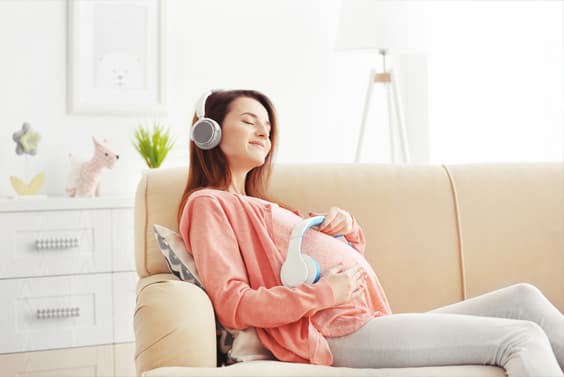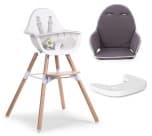It’s just like Beyoncé said… “Bring The Beat In”
It’s no surprise that listening to your favourite song, or popping on that catchy Spotify playlist can put you in a good mood for hours! Why should that be any different for babies? Well, it’s not. In fact music for babies, toddlers and young children can be a beyond powerful learning tool, as well as a vehicle to a happy, healthy and relaxed child!
Here at Baby & Toddler Town we have done some research on the Top 3 most important reasons why music should be something that you integrate in your daily routine - for you and for baby. (By the way, we are not just limiting this to Twinkle Twinkle Little Star, even though we know it’s a hit with the little ones!)
Music & Breastfeeding
Now, we know that the Internet is not short of breast-feeding tips, but interestingly, did you know the incorporation of some music therapy can be used to help enhance milk production and the breastfeeding experience for both mother and baby? A 2015 American study showed that music therapy was associated with a significant reduction in stress levels and increases milk supply. Subjects who received music therapy had significant increase in breast milk expression when compared to mothers who didn’t.
But, aside from the scientific “music v breastfeeding” conversation, music can be used to emphasise special parts of the day, like feeding time. In the early stages of your child's life, pop on some of your favourite tunes in order to soothe bub at feeding times. Music that they listened to in the womb might be an easy way to get them to respond to this at first. And as they get older, you can turn on the music, strap them into the high chair and move the focus away from hidden veggies, to a little sing-along to distract fussy eaters. It’s a way to get them calm, happy and settled.
Side note: This is a great way to get toddlers involved in their own musical taste development (...or, this is a great opportunity to enforce your own musical taste and turn them into avid little Ed Sheeran fans).
Music & Child Development
With the aid of music in educational toys and programs we can acknowledge that of course there is a correlation between music and baby development. As such, we should try to incorporate music into their little infant worlds as frequently as possible. In response, the baby may coo or babble, encouraging speech development. Babies have ‘music processing receptors’ that help with calming the baby and assist in encouraging the child to engage with the world around it.
Music educational toys for toddlers and infants can assist with educational development and an encourage curiosity and stimulate learning. For example, musical books like Yookidoo Light n Music First Book, are great as they promote eye tracking, sensory development and auditory skills. For slightly older children and toddlers who love their music, why not get them into their first instrument like the Bush Buddy Guitar that will get them actively interacting with music and of course, work on their rock star skills!
Music & Sleep
We all know that lullabies are something synonymous with baby sleep time, but have you ever wondered why? Put simply, it's the rhythm. Put in more complicated terms, most lullabies have a triple metre, which is a 6/8 time signature. This type of swaying and swinging-style rhythm is similar to what babies experience in the womb while you are walking. You will also find yourself gently rocking baby when you sing, thus settling them due to the relaxing and recognisable feeling.
Now, if you don’t find the sound of your voice to be particularly relaxing, you might want to consider a cot mobile for infantslike this stylish and neutral baby musical mobile by Lolli or a cuddly soft pull-string teddy to snuggle with at nap time like Tom The Bear. Soft toys that play music generally have calming melodies that can easily be attached to cradles and bouncers. There are also huge ranges of Spotify playlists that have entire sections dedicated to relaxing music for kids and sleeping music for babies.

References:
http://deta.qld.gov.au/earlychildhood/pdfs/tip-sheets/movement-music-play.pdf
http://www.bbc.com/news/health-24723952
http://iuhealth.org/news-hub/detail/why-do-lullabies-work/#.WLzGCxKGMQ8
http://pediatrics.aappublications.org/content/124/5/1488
https://www.ncbi.nlm.nih.gov/pmc/articles/PMC4437063/






